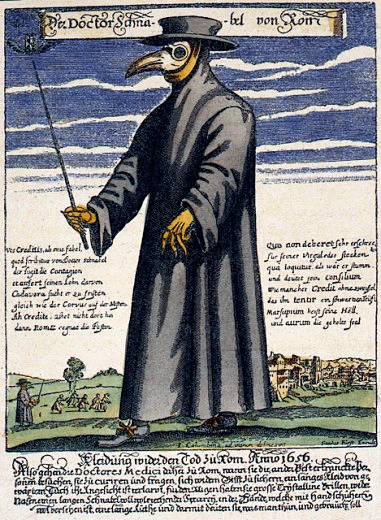The Plague Doctor
When the Covid-19 virus passes and things return to some kind of normalcy it will be extremely important to study what happened here. In a country where, on average, 200,000 people are hospitalized each year in the United States for the flu and its complications and between 3,000 and 49,000 people die each year from the flu, we have a kind of lah de dah reaction. The number of flu deaths every year varies. We take it in stride but for some reason this comes along and is all encompassing. Why? People will be spending a long time studying the fact that folks chose without any Government intervention to cancel the NCAA tournament which is a huge deal. People are watching and noticing that folks are, in this situation, willingly giving up some fairly important rights, and sociologists should have a field day studying the hoarding of toilet paper.
There has always been a sociological component to epidemics and illness that raised questions of fairness and justice. Death dealing illnesses over the ages always raised theological questions as well. Should a Pastor evacuate a town where the plague was raging? Should he send his family away? Should he continue church services? These were incredible questions in a day when people did not know how the disease began, spread, or came to an end. One of my Pastor friends recently sent this little announcement. Martin Luther was dealing with the Black Death. He wrote these wise practical words that can help inform the way we approach things happening in our world right now: “I shall ask God mercifully to protect us. Then I shall fumigate, help purify the air, administer medicine and take it. I shall avoid places and persons where my presence is not needed in order not to become contaminated and thus perchance inflict and pollute others and so cause their death as a result of my negligence. If God should wish to take me, he will surely find me and I have done what he has expected of me and so I am not responsible for either my own death or the death of others. If my neighbor needs me however, I shall not avoid place or person but will go freely as stated above. See, this is such a God-fearing faith because it is neither brash nor foolhardy and does not tempt God.” Luther’s Works Volume 43:132 the letter “Whether one may flee from a Deadly Plague” written to Rev. Dr. John Hess


